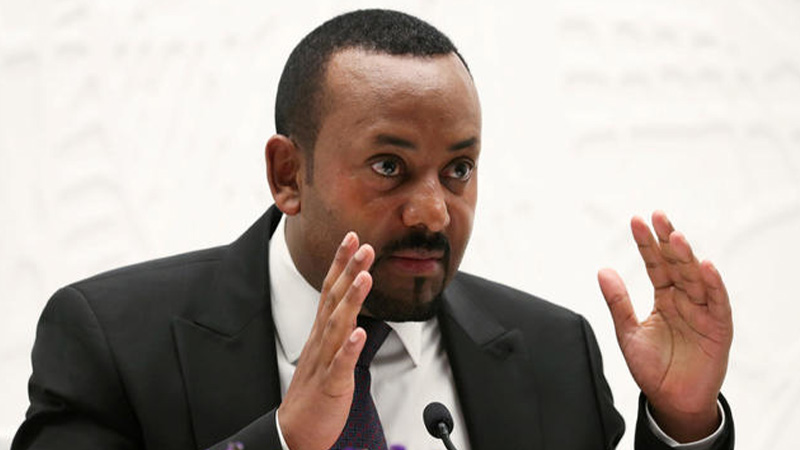Addis Ababa (Somaliguardian) – Ethiopia’s Prime Minister Abiy Ahmed rebuffed mediation offers from Kenya and Sudan leaders as the conflict in Tigray region veers onto a more violent path.
Mr Ahmed turned down request by Kenya to send special envoy Kolonzo Musyoka to Addis Ababa to help de-escalate tensions in Tigray region after Ethiopia’s military launched a major military offensive against regional authorities on Wednesday.
Sudan Prime Minister’s proposal to raise Tigray conflict as agenda in emergency IGAD summit also fell on deaf ears after Mr Ahmed insisted he would prefer a military solution to bring Mekelle-based junta under rule of law and maintain the constitutional order.
On Sunday clashes in the restive region reportedly intensified amid continued air strikes carried out by Ethiopian military jets in areas near Tigray region’s capital, Mekelle. Local authorities claimed shooting one fighter jet and vowed to take retaliation action against air strikes targeting TPLF military positions in the region.
Ethiopia’s Prime Minister fired his army chief, the head of intelligence and the foreign minister on Sunday as the military continued a five-day old offensive in the restive Tigray region with a new round of airstrikes.
Abiy gave no reasons for the personnel changes, which come as he pursues a military campaign against TPLF, a powerful ethnic faction that led the ruling coalition for decades until Abiy took office in 2018.
Is there any prospect for peace in Tigray?
Over the past few days after announcing offensive against Tigray People’s Liberation Front (TPLF), Ethiopia’s Prime Minister seemed hell-bent on pursuing military campaign, shutting all other avenues to stem rising tide of the ethnic faction that ruled the country for decades.
In a statement posted on his twitter account, Abiy highlighted that his government’s actions aimed to bring the “greedy Mekelle Junta” under rule of law and maintain the constitutional order, adding that the military offensive will benefit the most Tigrayans more than any other community.
Despite the PM’s insistence on war, Tigray regional President Debretsion Grebemichael said on Sunday it would be good to try to stop the fighting with federal troops and negotiate, but asserted that the region would keep on defending itself until federal authorities agree to negotiate.
Mr Grebemichael told Reuters that despite government still pounding some targets with air strikes, “federal control was zero within Tigray region”.
Regional political analysts believe prospects for de-escalation are currently narrower in Tigray region as Abiy Ahmed – with assurances of military assistance from neighboring countries – remains hell-bent on bringing an end to TPLF’s rule in the restive region.
Could Ethiopia’s conflict draw in outside forces?
Fears have been raised about possibility that the conflict in Ethiopia’s Tigray region could draw in outside forces with recent visit of Sudanese military officials to Addis Ababa raising the stakes amid reports that Sudan allowed ENDF to use its territory to open new front in western Tigray.
Eritrea is also feared to get involved in the war raging on in Ethiopia as Isaias publicly reiterated his deep-seated animosity to TPLF following the 1998 Ethiopia-Eritrea war that left tens of thousands of people dead. Media have been unable to verify reports of Eritrean military presence in Tigray region following internet and telephony blackout.
Millions risk displacement from Ethiopia conflict
Nine million people risk displacement from the conflict in Tigray, UN said in a report published on Saturday, warning that fighting was blocking food and other aid.
Nearly 600,000 people in Tigray depend on food aid to survive, while a further million receive other forms of support, all of which are disrupted, the UN office for the Coordination of Humanitarian Affairs said.
The report said clashes between federal troops and Tigrayan forces had broken out in eight locations in the region.
Contact us: info@somaliguardian.com













